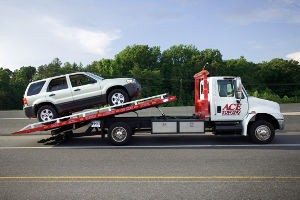
One of the most powerful tools of bankruptcy—the “automatic stay”—can stop the repo man cold. This is the law that automatically goes into effect the moment your bankruptcy case is filed at court to stay—or stop—all collection activity against you and your property.
The filing of a Chapter 7 or Chapter 13 case will force a creditor to immediately stop a repossession, even if that creditor has already sent out the repo tow truck. Not that you want to cut it this close but it’s good to have this protection if you need it.
In fact, under some circumstances even if your bankruptcy is filed very shortly after the repossession, you may be able to get your vehicle back. The timing is extremely critical here, and you would have to meet certain conditions. The point is that the “automatic stay” is very powerful.
But once the repossession is prevented, what then? The two different consumer bankruptcy options each help in different ways.
Keep the Vehicle with Chapter 7, or Surrender It
A Chapter 7 “straight bankruptcy” stops the repo. But then you quickly have to make a choice whether you want to and can afford to keep the vehicle, or instead will surrender it.
If you want to keep the vehicle you will likely need to catch up on the late payments within a month or two after the bankruptcy filing. Most vehicle loan creditors will not give you more time than that.
That’s because if you want to keep the vehicle you will be required to sign a “reaffirmation agreement” excluding this debt from the discharge of your debts. By law that agreement must be filed at court before the entry of the court order discharging all your debts, which generally happens about three months after your case is filed. So your creditor will very likely want you to be current on your loan before that reaffirmation agreement is prepared and filed at court.
If you can’t pay the loan current that quickly but want or need to keep the vehicle, one possible solution is a Chapter 13 case, discussed below.
Otherwise, you will likely need to surrender the vehicle. Although losing your vehicle may not sound like a good idea, sometimes it’s the best way to go. And probably the best time for that to happen is during your bankruptcy case.
The advantages to surrendering the vehicle are:
- getting out of the monthly payments (and insurance costs);
- avoiding having to come up with the money to pay the accrued late payments and related late fees and other possible charges; and
- discharging any “deficiency balance,” the amount that you would owe if you would surrender the vehicle outside of bankruptcy, after the creditor sold it and applied the proceeds to the balance.
Keep Your Vehicle through Chapter 13
You can also surrender your vehicle if you are filing a Chapter 13 “adjustment of debts” case. But Chapter 13 can give you some major advantages over Chapter 7 if you want to keep your vehicle:
- You generally don’t have to catch up on the back payments.
- If your loan is more than two and a half years old, you can do a “cram down”—re-write the loan to decrease the balance down to the fair market value of the vehicle. You can often also decrease the interest rate and or stretch out the payments for a longer term, all of this usually resulting in a significantly reduced monthly payment.
- The “automatic stay” preventing repossession lasts not just three months or so but potentially for three to five years—the length of your Chapter 13 case. You do have to keep up your end of the bargain throughout this time, and the creditor can try to ask for permission to repossess at any time, especially if you are not paying according to the plan. But still the potential protection is so much longer than in Chapter 7.
- You would likely have the flexibility of changing your mind and surrendering your vehicle later, if your circumstances changed.
Chapter 13 does come with disadvantages. It is much more expensive and takes years instead of months. If you are doing a “cram down” or surrendering the vehicle you may have to pay a portion of the unsecured or deficiency amounts along with your other general unsecured creditors. So Chapter 13 should not be entered into lightly.
Conclusion
If you live in the Dallas-Fort Worth Metroplex, and are trying to hang onto your vehicle, please contact me. I am Carrie Weir, a Texas bankruptcy lawyer, serving the areas around Rockwall, Heath, Greenville, Lavon, Wylie, Mesquite, Royse City, Sachse, and Rowlett. Please get in touch with me for a free and confidential consultation. Call 972-772-3083 or use the contact form here.








Speak Your Mind